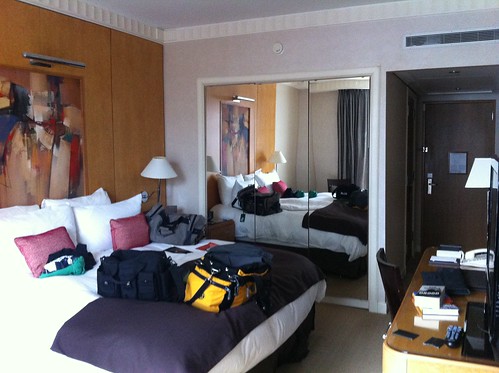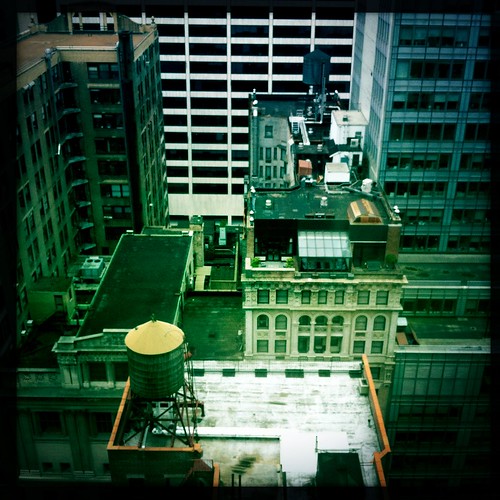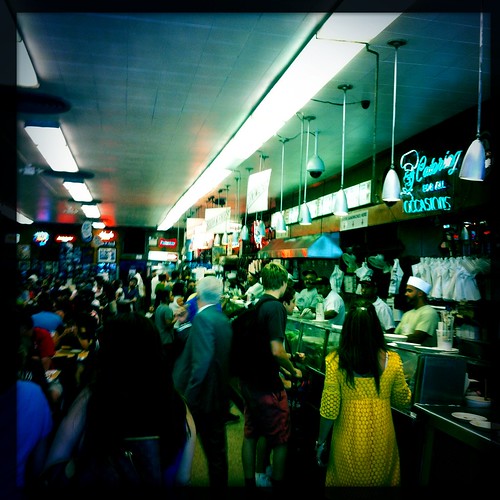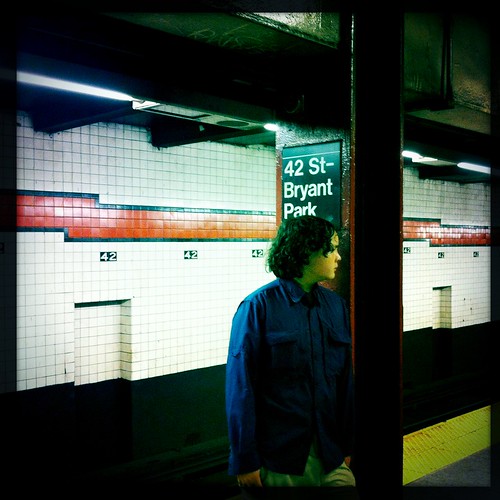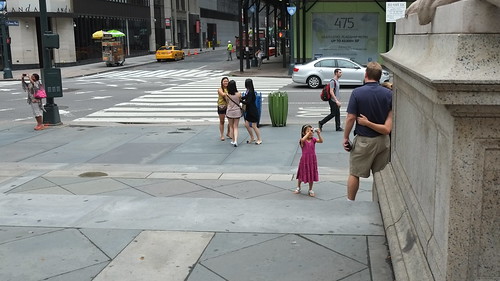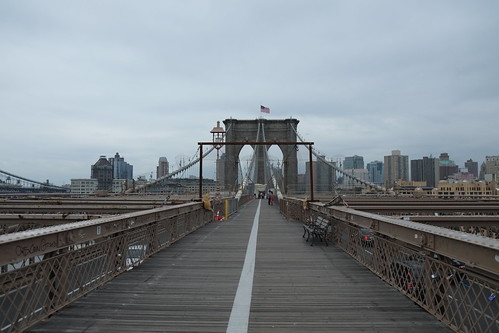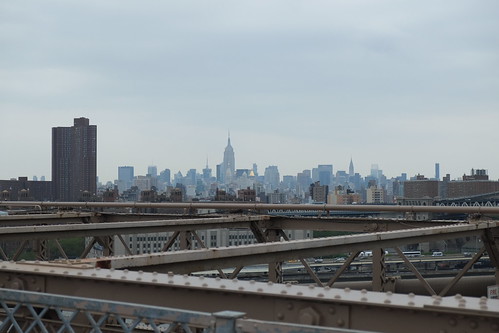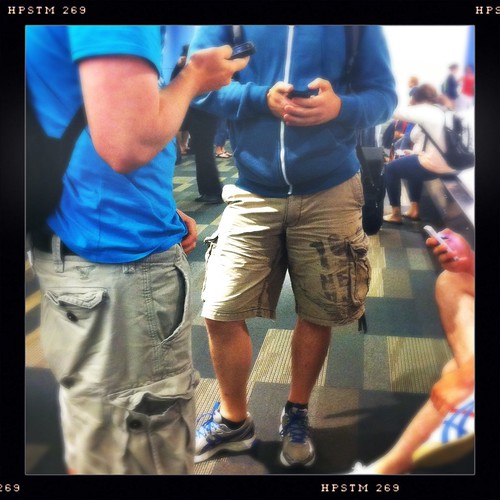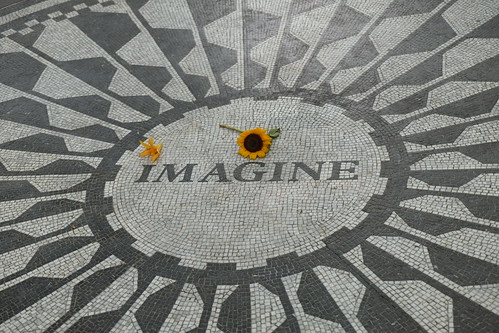Last week, I took a few days off and took my son to New York City. (I had a workshop in DC, and needed to meet my publisher and speaking agent in NY.)
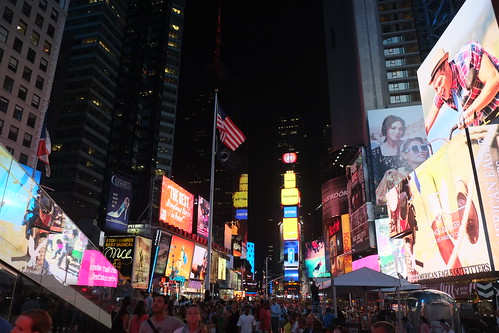
It wasn’t completely unplugged, but because I’m cheap and refused to pay the $20/day for wifi in my room, I ended up spending a lot less time online.
I’d post things to Facebook, but it was very much a quick update, hit-and-run sort of interaction that I would do from our hotel room in the morning or evening.
Besides, we were spening a lot of time out doing tourist things. Wednesday night we went up to the observation deck of the Empire State Building, which was brilliant, and I think a good introduction to the city.
The other days were spent doing things like walking through Central Park, walking across the Brooklyn Bridge, and just exploring SoHo and Greenwich Village.
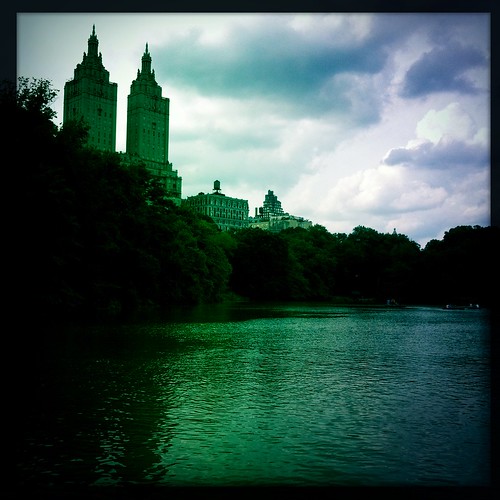
We also spent some time comparing the pastrami sandwiches as Carnegie Deli and Katz’s (I confess I like Carnegie better) and the bibimbop at various places in Koreatown, and introducing my son to various odd drinks that are hard to get in California– egg cream, celery soda, etc..
I suspect that 20 years from now, what he’ll remember most vividly is the hotel bathroom (which was huge and very nicely-apportioned), and his introductions to egg cream and celery soda. Which would be fine, and very age-appropriate.
While I had some business to conduct and friends to meet up with, I had brought my son to New York so he could see a bit of the East Coast, and I was curious to observe the city through his eyes. I did a lot of traveling with my dad when I was roughly my son’s age, and those were some of the moments of my childhood– as well as my relationship with Pop– that I remember most vividly. I’m a strong believer in the broadening effects of travel: like liberal arts education, you can’t necessarily explain how it works, but you also can’t quite imagine being as good a person without it.
Early on, I realized that understanding my son’s sense of New York– taking notice of what he found interesting, and getting a better understanding of both him and the city– was not something I could have done as well if I were constantly updating and tweeting and texting, if I’d chosen to turn a little more inward.
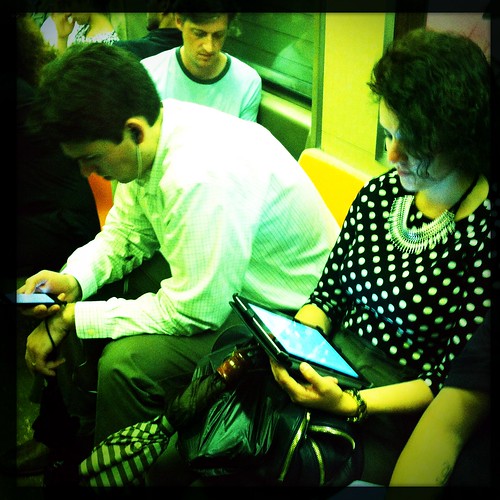
I was thinking about this after reading Mobiledia’s Margaret Rock piece on taking “a vacation for tech addicts.” Some of the article will be familiar to be people who keep up with the digital detox / Sabbath trend, but if you’re new to it (or want to forward on one article to someone who isn’t), it’s a good place to start: she talks about Camp Grounded, other vacation spots, and the like.
But if there was a lesson I drew from our New York trip, it’s that this kind of disintermediated, or at least device-light and personal interaction / direct experience-heavy, sort of vacation is one that you can design even in a city supersaturated with wifi, cellphone towers, and the like.
The emerging digital detox vacation industry tends to emphasize getaways in the redwoods, South Asian beaches, and the like, and I understand why: people respond to exoticism, they like pictures of beautiful people doing yoga on the beach at sunrise, and the further you travel, the more money the industry makes.
But we shouldn’t forget that the real power of the movement comes in its total accessibility: a detox or Sabbath isn’t a place you go, it’s a thing you do. It’s a set of choices you make, not a service that’s presented to you.
